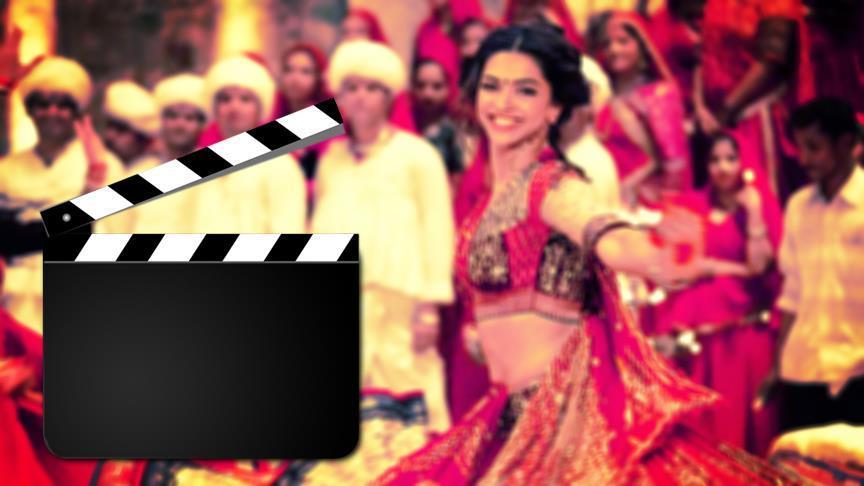Bollywood epic stirs India's religious divide
Padmavati tells story of a fictional Hindu queen and Muslim ruler of Khalji dynasty of Delhi Sultanate in 14C

By Shuriah Niazi
NEW DELHI, India
The much anticipated Bollywood movie Padmavati has hit political roadblocks even before its release.
So much so that there are fears that the film may never see the light of the day with some leaders of India’s governing party and right-wing groups baying for the blood of the director and actors of the film.
The film tells the story of a 14th-century Hindu queen Padmavati belonging to the high Rajput caste and Alauddin Khalji, the second ruler of the Khalji dynasty of the Delhi Sultanate.
Padmavati is a fictional queen in the epic eponymous poem written by 16th-century poet Malik Muhammad Jayasi. The poem eulogizes the valour and sacrifice of Padmavati, the queen of Chittor, who burns herself alive to escape invading Muslim emperor Khalji after he killed her husband in a battle.
Bollywood stars Deepika Padukone and Ranveer Singh play the roles of Padmavati and Sultan Alauddin Khalji in the film produced by Sanjay Leela Bhansali.
The film has been caught up in controversy with Hindu and Rajput groups alleging that it twists historical facts and depicts a close romantic scene between the main characters, a charge denied by Bhansali.
The Rajputs and the Hindus are outraged that the film shows the romance between a Muslim king and a Hindu queen and hurts the dignity and respect of Rajputs.
Many leaders of the ruling Bharatiya Janata Party (BJP) have strongly opposed the film which has been banned in some BJP-ruled states.
'Off with their heads!'
In northern state of Haryana, senior BJP leader and party’s state-level chief media coordinator, Suraj Pal Ammu offered Rs 100 million ($1.5 million) bounty to anyone beheading Bhansali and Padukone.
While the BJP has been steadfast in opposing the film, it reprimanded Ammu for publicly issuing death threats and a party spokesperson said the party had sought explanation from him.
Now a case has been registered against Ammu for issuing threats. The Haryana BJP leader, however, remained defiant. "We do not want to take law in our hands but we will not forgive anyone who tries to spoil the image of Rajput kings and queens," he said.
Recently, senior BJP member Raj K. Purohit in Maharashtra called for the film to be banned. He called the film a "slur" on the community and historical facts as it shows a queen dancing and without ghoonghat --a veil worn by some Hindu women to cover their heads, and often their faces. "It is against Rajput culture and pride," he said.
Vasundhara Raje, chief minister of BJP-ruled northern desert state of Rajasthan, said Padmavati would not be released in Rajasthan.
The film has also been banned in another BJP-ruled state of Madhya Pradesh (MP) in central India where its chief minister, Shivraj Singh Chouhan, said his government would not tolerate any distortion of historical facts.
"We have been reading about the rare sacrifice and dedication of Padmavati since our childhood. The queen committed self-immolation to protect her honor from the invading Muslim emperor Khalji after the fall of Chittor," Chouhan told Anadolu Agency.
Well-known film critic Jaiprakash Chouksey, however, said no state has the right to impose a ban. In New Delhi, senior Supreme Court lawyer Vivek Tankha said the Censor Board decides whether a movie should be released or not. "No state government has the right to take a decision to ban any movie," he said.
'No romantic scenes'
Amidst the raging controversy, director Bhansali said the protests were caused by a misunderstanding and the movie contained no scene showing a romance between Khalji and Padmavati. "In fact, the movie does not have any scenes that will show the two characters in one frame," he said in a statement earlier this week.
But Bhansali's clarification has done nothing to stop the negative buzz around the film.
In the western state of Maharashtra, several Rajput outfits staged protests and demanded a ban on the upcoming film. They said Padmavati was the pride of the nation so anything related to her should not be distorted.
Film does 'injustice' to Khalji
Historians and scholars say opposition to the film is uncalled for, while pointing out the inaccurate depiction of Khalji as the villain.
"There are widespread protests against depiction of a fictitious queen in the movie. But Bhansali has done real injustice with Alauddin," Tariq Qureshi, a retired professor of history told Anadolu Agency.
He said the film depicted Khalji as a "barbaric, uncouth and eccentric person who wears strange clothes and comports like a savage".
"However, Alauddin was a very cultured person. The film shows one of the most able administrators of his times as a cruel, immoral person," he added.
Historian OP Mishra also believes the movie is doing the Muslim ruler, which he called one of the most intellectual rulers of India, injustice.
"Padmavati is a historical but imaginary character. There are stories in every country, but they cannot be accepted as part of history. So the violent reaction to the film is ridiculous and incomprehensible. Alauddin was not brutish and evil as shown in the film," he said.
Actor Ranveer Singh, who plays Delhi Sultan in the film, refused to talk on the issue citing instructions from the producer.
Anadolu Agency website contains only a portion of the news stories offered to subscribers in the AA News Broadcasting System (HAS), and in summarized form. Please contact us for subscription options.







